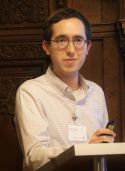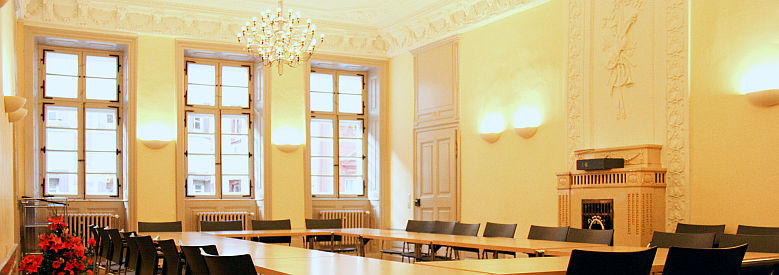Theodore (Teddy) R. Delwiche

Wissenschaftliche Mitarbeiter/McDonald Post-Doctoral Fellow in American Church History
Heidelberg Center for American Studies
Hauptstr. 120
69117 Heidelberg
T: +49 (0)6221/543881
E-mail: teddy.delwiche@uni-heidelberg.de
THEODORE (TEDDY) DELWICHE is a post-doctoral fellow at the Heidelberg Center for American Studies whose research interests lie at the intersection of early modern intellectual history, religious history, and classical reception studies. He is particularly interested in the historical practices and purposes of education, focusing on the lives of early modern students.
Teddy studied classical languages and literatures at Harvard College (B.A.), and afterwards completed his graduate training in history at the University of Groningen (ReMA) and Yale University (PhD; MA; MPhil). His research to date has been generously supported by over 25 different grants, fellowships, and awards, including most recently from the McDonald Agape Foundation. Currently, he is revising his dissertation, "The Contested Classics: Education in Early North America, 1630-1830,” into a book manuscript and plotting his next book-length project on a student-centered history of the early modern research university.
Peer-reviewed Articles
“Shorthand and the Informed Public in Early American Politics,” Studies in Manuscript Culture, forth.
“Colonial Students and Collegiate Society: Rethinking the Pupil’s Place in Early American Higher Education,” Journal of the Warburg & Courtauld Institute, forth.
“Ezra Stiles and North America in the Early Modern Republic of Letters,” Modern Intellectual History 20 (2023): 27-61.
“Training for the Ministry: Shorthand and the Colonial New England Manuscript.” Huntington Library Quarterly 85, no. 2 (2022), 317-346.
“Masters of the Manuscript, Makers of Knowledge: Colonial New England Students and their Shorthand Notes,” Erudition and The Republic of Letters 7 (2022): 434-470.
“Shorthand Crosses the Atlantic: An Overview and Preliminary Census of Shorthand Manuscripts in Early New England,” Manuscript Studies: A Journal of the Schoenberg Institute for Manuscript Studies 7.1 (2022): 187-203.
“And why may not I go to College? Alethea Stiles and Women’s Latin Learning in Early America,” Humanistica Lovaniensia 70, no. 2 (2021): 305-318.
“Fuit ille non empiricus mercenarius: Apprehensions towards Alchemy in Colonial New England.” Ambix 67, no. 4 (2020): 346-365.
“The Schoolboy’s Quill: Joseph Belcher and Latin Learning at Harvard College c. 1700,” History of Universities 33, no. 1 (2020): 69-104.
“vilescunt in dies bonae literae: Urian Oakes and the Harvard College Crisis of the 1670s,” Lias: Journal of Early Modern Intellectual Culture and its Sources 46, no. 1 (2019): 29-58.
“An Old Author in the New World: Terence, Samuel Melyen, and the Boston Latin School c. 1700,” The New England Quarterly 92, no. 2 (2019): 263-292.
Reviews
Maya Feile Tomes, Adam J. Goldwyn, and Matthew Duquès (eds.), Brill’s Companion to the Classics in the Early Americas. Leiden: Brill, 2021. International Journal of the Classical Tradition, forth.
Andrew Dinan. Americana Latine: Latin Moments in the History of the United States. Rome: Paideia Institute for Humanistic Study, 2020. The Bryn Mawr Classical Review (Feb. 2023).
Roosevelt Montás, Rescuing Socrates: How the Great Books Changed My Life and Why They Matter for a New Generation. Princeton: Princeton University Press, 2021. Paedagogica Historica (2022).
Eric Adler. The Battle of the Classics: How a Nineteenth-Century Debate Can Save the Humanities Today. Oxford: Oxford University Press, 2020. History of Universities 35, no. 2 (Dec. 2022).
David Lupher, Greeks, Romans, and Pilgrims: Classical Receptions in Early New England. Leiden and Boston, Brill, 2017, The Classical Outlook 94, no. 3 (2019).
*freely available copies of all the above can be found here.


 Graduiertenkolleg
Graduiertenkolleg